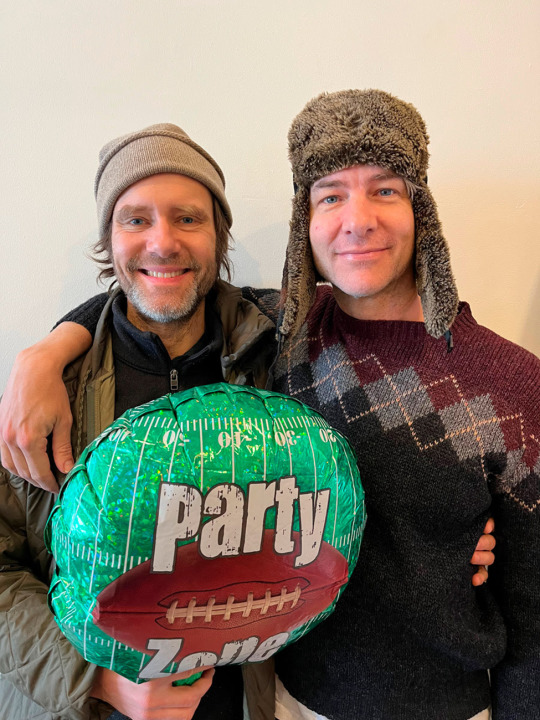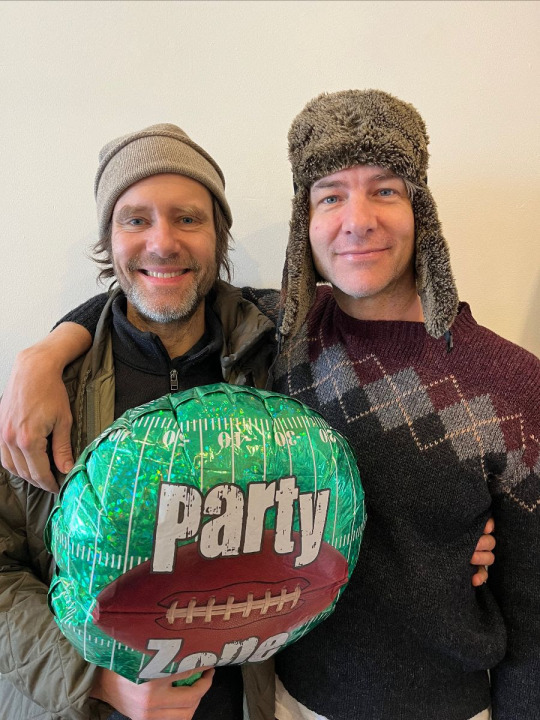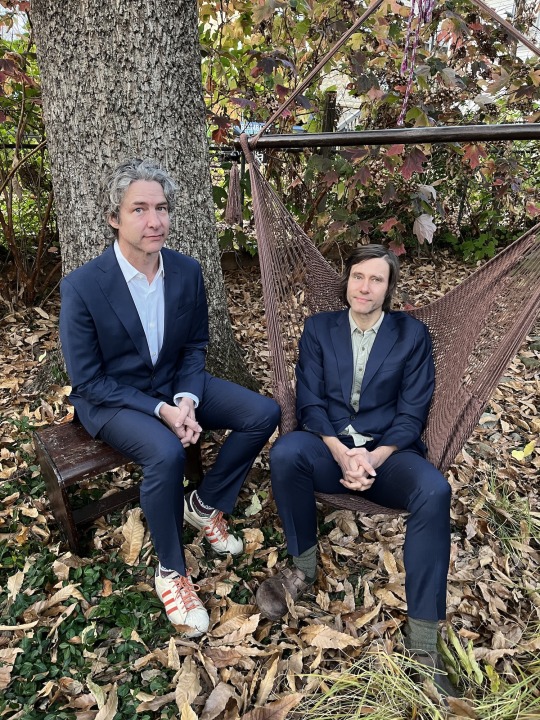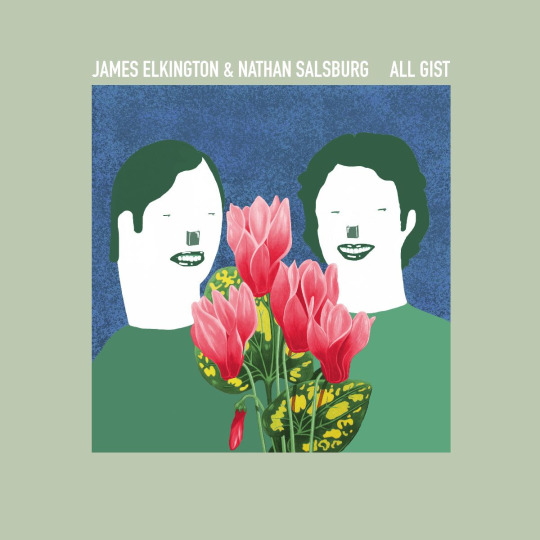#elkington
Explore tagged Tumblr posts
Text

Paige Elkington
#Paige Elkington#beauty#pretty#eyes#lips#sexy#hot#beautiful body#legs#thighs#beautiful hips#sexy hips#feet
22 notes
·
View notes
Text

ChildLine in Zimbabwe (2002)
#childline in zimbabwe#zimbabwe#2002#postal stamps#postage stamps#Artwork of Tazivei Makwavarara#Artwork of Ashley Elkington#Artwork of Goldine Hobbs#Artwork of Admire Kacheche#stamp collecting#stamps#my scans#childline#teddy bears#phones#square stamps
45 notes
·
View notes
Text

James Elkington & Nathan Salsburg - First Unitarian Church of Philadelphia, Philadelphia, Pennsylvania, October 22, 2015
Head over to Aquarium Drunkard to read my conversation with six-string kings James Elkington and Nathan Salsburg, whose brand-new All Gist (out now on Paradise of Bachelors) is one of my favorite records of 2024 thus far. These guys aren't just extraordinary guitarists, they're also very nice dudes.
As mentioned at the tail-end of the interview, Jim and Nathan are planning some live Gist gigs in the coming months — their first real tour since 2015! To get prepped for that, check out the above video from back in those days, expertly filmed by Elkhorn's Jesse Sheppard. If you're a guitarist, it'll be fun (and perhaps frustrating) to see how casually Elkington and Salsburg dispatch these intricately detailed tunes. Unfair!
And how's about Aquarium Drunkard?! We're a couple weeks into the new age, with memberships rolling in fast 'n' furious. Tons of killer stuff going up on the regular, including terrific High Llamas and Shabaka Hutchings interviews, a Lagniappe Session from the Reds, Pinks and Purples, a fresh Bandcamping column ... and so much more! If this is the kind of thing you dig, consider pitching in.
5 notes
·
View notes
Text
James Elkington and Nathan Salsburg — All Gist (Paradise of Bachelors)

In this third album of guitar duets, James Elkington and Nathan Salsburg perform a complicated sort of dance, their separate instruments executing, light and agile motifs, sometimes in concord, other times slightly out of sync. The melody refracts through their separate interpretations, so that you often feel like you’re hearing it from multiple angles or doubled with an echo. Though some of the songs have a twinge of melancholy, most of them explode with joy. Their two instruments chase each other like dogs at happy play.
Elkington and Salsburg pick up their musical conversation after a long hiatus. Ambsace, their last collaboration, came out in 2015. But like the best reunions, this one is free of awkwardness. They treat each other with warmth and respect throughout. The guitars tangle but never step on one another, each player leaving space for the other.
The pair also makes judicious use of other talent to bolster and deepen their sound. The opener “Death Wishes to Kill” gets a firm grounding from Nick Macri’s acoustic bass; he lends a steadiness to this playful tag in thumps that resonate and mark time without staking too prominent a place for themselves in the sonic mix. But even more striking is the wild skirl of violin that Wanees Zarour adds, wheeling around the guitar line in a throaty emotional timbre. Zarour played on the last Elkington/Salsburg disc. He is a Palestinian-American multi-instrumentalist and academic who teaches at the University of Chicago.
“Nicest Distinction” shows how the foundation that Elkington and Salsburg lay down can be opened up and expanded. It begins in stately ritual, a madrigal with a little blues introduced in the way the phrases end with a vibrating bent notes. It’s just the two of them for a good long while, one strumming splayed chords, the other picking a melodic path in and among the meditations. Yet this long piece kicks into a gallop towards the end, with wild tom-tom fill and woodwinds played by Wednesday Knudsen.
All Gist will likely be lumped into the folk category, being acoustic and not quite modern. Still there is really only one actual folk tune on it, the mortality-shaded frolic of “Rule Bretagne,” based, per the title, on the music of seagoing France. Well, maybe not. “Explanation Point” digs pretty deep into country blues, the notes sliding and tumbling down a sunlight rambling path. Here, as elsewhere, melodic lines zing off each other then carom back for a moment of concord.
But really, the most interesting cuts veer the furthest from conventional folk. “Well, Well Cornelius,” originally written for piano by the British composer Howard Skelton, offers a radiant procession of chords framed by the regular architecture of picking. It is serene and unhurried and really quite beautiful. So, is “Buffalo Stance” a Neneh Cherry song you might remember for its pop-locking hip hop beat and strobe lit video. These artists distill it down to melody—a tune you might not have focused on the original, very different version—and transform the cut into a gentle, bucolic ramble. Ironically, in the video, Neneh introduces her song with an aside of “how melodic” which feels like sarcasm, but these two guitarists heard it there all along. Just lovely.
Jennifer Kelly
#james elkington#nathan salsburg#all gist#paradise of bachelors#jennifer kelly#albumreview#dusted magazine#guitar duets#neneh cherry#howard skelton#finger picking
4 notes
·
View notes
Photo

A Roman Woman by Jeremy Elkington
Once again, ditto Octavian—with the added complication that Octavian’s own wife [Scribonia] was also pregnant. Unblinking, Octavian took a married woman as his mistress. He requested that her husband divorce her so that he in turn might marry her, having determined to divorce his own pregnant wife. But he balked at providing his detractors with unnecessary grounds for accusing him of impropriety. In his defense, he invoked the assistance of the college of pontiffs, asking the priests, as Tacitus recorded, ‘the farcical question whether it was in order for [Livia] to marry—’ that is, remarry while pregnant’.
That learned fraternity obligingly ruled that so long as there was no doubt of the child’s paternity—that Drusus was Nero’s baby—no obstacles existed to Octavian and Livia’s marriage. Cato-like, Nero himself erected no barriers and divorced his wife with every semblance of good grace. Brutally, Octavian ensured Scribonia’s compliance: he divorced her the very day she gave birth. Her baby was a daughter, Julia, as it happened the only child Octavian would have. As a reward for the agonies of childbirth, Scribonia’s treatment appears harsh. Octavian skimped on explanations. ‘I could not bear the way she nagged at me,’ he offered, in Suetonius’s account. Even in Rome, where divorce was an easy matter, his pretext was flimsy.
—Matthew Dennison, Livia, Empress of Rome
#Jeremy Elkington#Augustus#Caesar Augustus#Octavian#Livia#Livia Drusilla#Julia the Elder#Julia Augusti#Scribonia#Roman history#Matthew Dennison
4 notes
·
View notes
Text
Jake Xerxes Fussell Live Show Review: 10/17, Empty Bottle, Chicago

Jake Xerxes Fussell
BY JORDAN MAINZER
Over the years, Jake Xerxes Fussell's repertoire and sound have expanded, though he's never lost sight of his exploratory ethos. On his self-titled debut and sophomore effort What in the Natural World, he introduced himself as a contemporary troubadour, an interpreter who used original arrangements to surface the universal meaning out of old songs. 2019's Out of Sight was his first record with a full band, 2022's Good and Green Again his first to combine traditional songs with wholly original compositions. In July, Fussell brought it all together on his debut album for Fat Possum, When I'm Called; it's an album featuring a murderer's row of collaborators and songs that Fussell constructed backwards, coming up with melodies and riffs before adapting them to folk songs that fit.
On When I'm Called, legends Fussell knew who may or may not have met each other, like cowboy artist Maestro Gaxiola and painter, musician, and folklorist Art Rosenbaum (a mentor of Fussell's who passed away in 2022), are intimate bedfellows. Fussell lifts from the public domain, Benjamin Britten, and found poetry on a scrap of paper. Returning are close collaborators like James Elkington, in the producer's chair and playing seemingly everything from synth to harmonica, as well as Joan Shelley, singing alongside Fussell's baritone on "Cuckoo!". Uniting with Fussell for the first time are guitar luminary Blake Mills, whose abstract tones nestle between Fussell's acoustic guitar and Elkington's pedal steel on "Going to Georgia", and Hunter Diamond, whose woodwinds pop up just when you need them most, like a consistent smiling face around the neighborhood. In general, on When I'm Called, more than ever, the band gets room to meander, to take in their surroundings.

Fussell & Ben Whiteley
How, then, would Fussell, who usually plays solo, adapt the arrangements not just to a live stage, but for a crowd who has had months to take in the recorded versions? Indeed, Thursday's show at the Empty Bottle featured the youngest crowd I've ever seen at a Fussell headlining show. Some of that, perhaps, had to do with the venue itself and the start time of his set (after 10 P.M.). But something tells me, at this point, people are less inclined to hear beloved old songs and more amped for Fussell specifically, the guitar player who picks bright-eyed on "Jump for Joy", the singer who belts, "Well, wake up woman, take your big leg off of mine," on "Have You Ever Seen Peaches Growing on a Sweet Potato Vine?". (I went to get a beer at the bar as he sang, passing by a crowd member cackling, turning to their friend and declaring, "I love that line!") Well, for one, Fussell didn't play solo this time. He was always accompanied by bassist Ben Whiteley, who plays on When I'm Called. Whiteley's steady plucking eased us into "Michael Was Hearty", and his rhythms buoyed Fussell's chugging guitars on an unexpected, but great cover of Nick Lowe's new wave classic "I Love The Sound of Breaking Glass". As we were in Chicago, Elkington, too, joined Fussell on stage for a number of songs, providing contrasting guitar textures on "Cuckoo!" Even The Weather Station's Tamara Lindeman, all the way from Toronto, was in the crowd and came on for backing vocals.

Fussell
It's easy to say that what is usually a lonesome affair turned into a party, given that the number of people on stage at any given moment quadrupled from its usual number. The more I thought about it, though, whether it's four musicians crowding around each other or just Fussell perched on a stool, his shows are always communal. On Thursday, the most affecting and memorable moments of the night were spontaneous. Out of Sight's "Jubliee" started as a singalong and felt like a full-on hymnal towards the end, the crowd repeating, "Swing and turn, Jubilee / Live and learn, Jubilee," like it was a mantra of keeping-on. And then there was "Donkey Riding", a traditional song which does not (yet) have a studio version, inspiring the biggest, and somehow still most polite sing-and-clap-along of the night. The moment the crowd seemed to get a tad too rowdy, we shushed each other so we could hear one last instrumental flourish, one last guitar lick from the artist who continues to give us gifts we didn't even know we already had.
#live music#jake xerxes fussell#empty bottle#fat possum#hunter diamond#ben whiteley#when i'm called#what in the natural world#out of sight#good and green again#fat possum records#maestro gaxiola#art rosenbaum#benjamin britten#james elkington#joan shelley#blake mills#nick lowe#the weather station#tamara lindeman
0 notes
Text
What the Dickens!
BLEAK EXPECTATIONS The Crescent Theatre, Birmingham, Saturday 14th September 2024 What started off as a silly Radio 4 comedy series became a silly West End show. The works of Charles Dickens pillaged and parodied to Pythonesque proportions. Writer Mark Evans, adapting his own series, makes certain there is plenty of visual humour and physical comedy, things that don’t work too well on the…

View On WordPress
#Andrew Elkington#Bleak Expectations#Charles Dickens#Chloe Potter#Damien Dickens#Graeme Braidwood#Jack Kirby#James Booth#James David Knapp#Katie Goldhawk#Keith Harris#Mark Evans#Mark Shaun Walsh#Nathan Hawkins#review#Rose Snape#The Crescent Theatre#The Ron Barber Studio#Vicky Youster
1 note
·
View note
Photo

9:47 AM EDT July 22, 2024:
James Elkington - "Ever-Roving Eye" From the album Mojo 2020: Music For Homes (May 15, 2020)
Last song scrobbled from iTunes at Last.fm
Free CD that's not really ambient, though its title and art would suggest just such a thing, given away with the July 2020 issue of Mojo
File under: Coronavirus Music
0 notes
Text
Flashfood CEO Nicholas Bertram Talks About Customer Loyalty - Do Consumers Really Care About "Planet Impact?"
Beside "planet impact," what do consumers look for in an ESG program?
“Through surveys, we know factually that the majority of people who come in to pick up their Flashfood order are also walking into the store and picking something else up,” Bertram said. “That’s why we strategically positioned the Flashfood zone past the point of purchase. … Most of the shoppers, I think, usually go and pick up the other things that they want, and then pick up their Flashfood…

View On WordPress
0 notes
Text
“The Winner Takes It All”
Original by ABBA
Covered by James Elkington
0 notes
Text
Does anybody have a download link for Fifteen Love? I can't seem to find it anywhere.
#fifteen love#fifteen-love#aidan turner#Hania Elkington#Ella Lily Hyland#glenn lapthorn#justine pearce
0 notes
Text
Sometimes I feel like I’m alone and uniquely unloveable but then I remember that my friends and I invented an entire universe based on a Christmas decoration from bed bath and beyond. It was a bust of an elk dressed like a fancy 19th century gentleman and we named him Percy Elkington. This was ten years ago and to this day every one of us is still committed to the bit, there is so much Lore now that no single one of us can remember it all but if I asked the group “What was Percy Elkington’s wife’s name?” someone would know the answer. The five of us are carrying this universe together on our backs and you can’t do a job like that with someone without loving them just a bit.
#any animal that is both anthropomorphized and fancy#can take its place in the PEU (Percy Elkington Universe)
0 notes
Text
Dust Volume 9, Number 12

James Elkington
Last Dust of the year and, holy cow, next year will be a whole decade since we started. We’re working with a bit of skeleton crew this time because of the holidays, but still managed to take in a broad spectrum of music, from famous novelists on holiday to monochord droners to surprisingly joyful takes on saudade. Dusted writers who shrugged off Christmas shopping, wrapping and general festivity long enough to write included Jennifer Kelly, Bill Meyer, Ian Mathers and Bryon Hayes. Happy new year and see you in 2024.
Gabriel Birnbaum—Nightwater/all the dead do is dream (Western Vinyl)
Gabriel Birnbaum, leader of the indie band Wilder Maker and one-time saxophonist in the ethio-jazz Debo Band, started making music on a Tascam four-track during the pandemic. It was, at first, a way to keep busy, to keep the dread at bay, but it evolved into a regular meditative practice and, eventually, a public-facing recording project, now releasing on the esteemed Western Vinyl imprint. This second release under the Nightwater banner is, as all that history suggests, a serene and unruffled piece of work, using mostly synthetic textures but also incorporating some rougher, more organic sounds. “above a forest with a house that’s on fire” pulses with bright keyboard tones that blow up unexpectedly into dissonance periodically. It moves deliberately, placidly, from here to there, letting sustained tones linger over insistent cadences. “i ordered a beer that never came,” is a bit livelier, with claves-ish clicks and percolating guitar; it dances a bit and flares into jazzy bravado. Some of these cuts have a dream-like aura, like the child’s wind-up lullaby “through a gauntlet of moonlit junk” with its sliding, morphing guitar notes, arcing over bell-tone intricacies. This is an album that works best in darkness and calm; use it as background music and it will disappear.
Jennifer Kelly
Max Eastley / Terry Day / John Butcher—Angles of Enquiry (Confront)
It would be easy to focus on the personally and sonically idiosyncratic aspects of this recording. Given that it’s just one string on a block of wood Max Eastley’s monochord has a spectacularly flexible sound bank; sometimes he sounds like a Vietnamese dan bau, and other times like a reportable manufacturing safety incident. Terry Day’s drumming manages to combine a respect for space with a brisk harshness that keeps things on point; rumor has it that he was not enamored of the drumkit that was supplied to him, and there’s certainly no kindness in his audible touch. And John Butcher’s saxophone playing is, as usual, adroit and immaculately controlled while inhabiting a realm of sounds that others imitate at their peril. But what keeps me coming back to this humble CD-r, which is part of the Confront label’s Core series of new recordings of improvised music, is the way this music feels simultaneously sudden and proportional. The three minds that imagined this music are not only responsive improvisers, but a formidable compositional collective.
Bill Meyer
James Elkington—Me Neither (Important)
James Elkington is an exceptional guitar player, the top-of-list sideman for Wilco and Richard Thompson and an accomplished and fluid folk-indie songwriter, whose agile picking is matched by a sardonic lyrical wit. Me Neither showcases the former, but not the latter, in a series of 29 short, improvised pieces Elkington recorded during the pandemic. There is some lovely playing here in the brief but radiant “Today’s Dictation,” the Brit-folk pavane of “The Incredible Waist of Time,” the buzzy, squeaky urgency of “Where For Do I Run.” Indeed, these cuts are, to a one, rather beautiful for the one or two minutes in which they flare and die. Even, so the overall result is unsatisfying. It’s like making a meal out of happy hour hors d'oeuvres, each bite tasty and caloric, but fleeting.
Jennifer Kelly
Neil Gaiman and the FourPlay String Quartet—Signs of Life (Instrumental)
“Mobius Strip” is an intricate bit of musical machinery. Its pizzicato architecture meshes like sparking gears; its winding violin melody careens wildly over prickly structures. It neither recedes nor predominates over Neil Gaiman’s spoken word, fitting neatly in the spaces he leaves in a fascinating, ruminative story about the twisted paper ring that stands in for eternity. The piece is that most difficult of verbal maneuvers, the extended metaphor, which Gaiman sticks like a gymnast’s landing. His starts with Gaiman’s grandfather demonstrating how you can trace your finger along its surface, traveling from one side to the other without ever breaking contact. It becomes a way of looking at life, connection and the unexpected. As Gaiman concludes, “It’s the twist that brings you back where you started.” “Mobius Strip” is maybe the best and most impressive cut from Signs of Life, but not by much. Joan of Arc makes a disruptive reappearance in raucous, “The Problem with Saints,” while “Credo” recounts Gaiman’s free-thinking philosophy against the throb of mournful cello and viola. There are long extinct animals and barely remembered life turning points and a meditation on death, all spirited and inventive and absolutely without sentimentality. You will hear the words first—you can’t help it—but as you listen, you’ll also notice how well the music supports and nourishes the poetry.
The music on this disc comes from what was intended as a one-time collaboration between celebrated sci-fi/fantasy author Neil Gaiman and Australia’s hippest string quartet. The author’s knotty, reflective spoken word entwined with the FourPlay String Quartet’s spare, rhythmic accompaniment first for a commission at the Sydney Opera House’s Graphic Festival. It went so well that the artists recorded it, had it illustrated and released it as a book, e-book and CD—they have since performed it in New York and London. It is a marvelous piece of work, odd and unsettling, bent and beautiful. I’m not much novelists in rock bands, generally, but this is different.
Jennifer Kelly
Peppermint Moon—Pocket Dial Tears (Self-Released)
Peppermint Moon makes a jangly, mildly psychedelic power pop that might, in other decades, be regarded as Paisley underground. A one-man project of Colin Schitt, who also plays in El Radio Fantastique. Pocket Dial Tears works the tuneful, happy-sad vein of Anton Barbeau, the Lilys and the Young Fresh Fellows, with well-shaped melodies made for staring wistfully out of windows. “I Thought I Knew” lays yearning, reverberating surf guitar licks atop bittersweet, rain-through-sunshine verses; the song has a drifting, musing propulsion, its wry confessions and fiery guitar solos evoking Steve Wynn & the Miracle 3. “Day to Day” pivots more delicately on a music box melody, whammied guitar notes vibrating in the ether around the verse and a little bit of string romanticism swooping in at the interstices. “He She They” is maybe the best of the lot, a lament about being misunderstood spun out into baroque pop grandeur.
Jennifer Kelly
Polyorchard — scree/n (Trip Ticks Tapes)
scree/n is a single, multifaceted improvisation, recorded remotely by an illustrious crew and extending without break for an hour and 20 minutes. David Menestres solicited contributions from Gastr del Sol-into-Black Faurest mainstay David Grubbs, Exploding Star Orchestra’s Jeb Bishop on trombone and experimental saxophonists Laurent Estoppey and Catherine Sikora, a passel of experimental composers and out-there bassist Ollie Brice, then pieced them together in a composition that feels somewhat episodic but not incohesive. It starts in the frayed blowing, a saxophone tone split into two pieces, full of air. This whispery invocation fades, and then the music starts to dance then, another sax (or maybe the same one) kicking out in blowsy frolic, then settling to buzz again. Now a bit of percussion enters in, now a subdued screech of feedback builds in the background. Blasts of noise hammer through contemplative intervals of saxophone. A tune emerges and disappears into buzz and squawk and rumble. A roiling surf wave of noise that maybe comes from an acoustic bass played unconventionally squalls amid rattling knocks on wood. Still the sax persists in making a song out of things, fluttering and beckoning and flirting back at you over one shoulder as it saunters into the maw of things. At the half hour mark you begin to hear David Grubbs in lucid, lyrical chords, placed at wide intervals like wickets on a croquet course that the sax must thread through. Explosive noise erupts and just as suddenly recedes. Serene and unhurried, but somehow also full of sturm and howl, scree/n is a perfect metaphor for our age’s listless anxiety, our ceaseless striving to make sense and beauty out of accumulated sensory inputs.
Jennifer Kelly
Nicole Rampersaud — Saudade (Ansible Editions)
The Portuguese word saudade has no direct translation to English but evokes a complicated mixture of emotions: deep sorrow, wistfulness, longing for a past that brought joy. Toronto composer/improviser and trumpeter Nicole Rampersaud’s debut solo outing complicates matters in that it revels in moving forward and pushing against boundaries. Shards of digital noise hold equal weight to her trumpet intonations, raw breath, puckering and clucking. There’s an immensity at play as the elements interact. Multiple layers pile onto the fray that Rampersaud provokes, such that she conjures a nervous energy. The sparks fly, and her trumpet lines weave around the nests of glowing particles, hoping to avoid catching fire. Perhaps she’s avoiding her own sense of saudade by outpouring such rich and spirited compositions. Regardless, Rampersaud’s music mirrors the complex nature of the term, rather than the literal emotions that lie beneath it. It’s we listeners who end up reaping the benefits, so this writer isn’t complaining.
Bryon Hayes
Andreas Røysum Ensemble — Mysterier (Motvind)
Mysterier (in English, Mysteries) is the third album by Norwegian clarinetist Andreas Røysum’s biggish band, which is populated by musicians who lead or are members of other bands on the Motvind roster. The label’s name translates to Headwind, whose diverse endeavors present an art-as-activism stance, and the album covers depicts the ensemble tying up Uncle Sam and deposing the Monopoly Man whilst dressed in fairytale drag. The music is correspondingly defiant and optimistic, marshalling celebratory grooves, folk melodies and free-ish horn solos to fight the powers that be. Singer Sofie Tollefsbøl’s two turns at the microphone tip the balance towards an English folk vibe, and the grandeur attained by their arrangement of “Barbara Allen puts the rest of the album in the shade. But if Steeleye Span dancing with Organic Music Society at the protest sounds like your vibe, you’ll want to hear the whole thing, which is available on download, vinyl, and green-faced, short-run compact disc.
Bill Meyer
Spanish Love Songs — No Joy (Pure Noise)
youtube
The emotional arc between Spanish Love Songs’ last album and this one can be summed up by going from “my bleak mind says it’s cheaper just to die” to “you're not a cautionary tale/so don't you vanish on me.” The sonic one, meanwhile, comes with the Springsteenian synth backing that accompanies the latter song. Dylan Slocum and the rest of the band are still grappling with oppression both economic (“Clean-Up Crew”) and spiritual (“Rapture Seeker”), and with existentially paralyzing levels of depression (“I’m Gonna Miss Everything,” “Middle of Nine”). But the hard-won perseverance they’ve developed has clearly stuck with them and grown in strength. No Joy is less singularly pummelling, but it more than makes up for it by seamlessly folding in the influence of the band’s new wave and Americana forebears. Just as the February 2020-released Brave Faces Everyone accidentally fit the rest of that extremely dark year perfectly, No Joy feels like the right record for 2023; harrowing, but in a different way.
Ian Mathers
Tacoma Park — What About a Collage? (self released)
You could excuse Carrboro, NC duo Tacoma Park if they’d decided to rest on their laurels for the rest of 2023. Their self-titled second album, released in April, could be fairly considered a triumph (it was here at Dusted, for one), the culmination of years of adjusting to a new, pandemic-related creative practice, which also generated a series of singles (which they collected this September). That’s a productive year. Instead, Ben Felton and John Harrison have given us all this 40-minute new single. The title probably refers more to their taste in album art than the nature of “What About a Collage?” itself, because this is a pretty focused journey. It starts out a little more on the bleepy-bloopy end of things before whisking the listener off to a space where it feels like Ash Ra Tempel is playing around with Mountains. Eventually the whole thing ends with some beautiful interplay between what sounds like synthesized woodwinds and some plangent guitar. Good to hear that their lengthy, labyrinthine album doesn’t appear to have come anywhere close to tapping out their creativity.
Ian Mathers
Trespass Trio Featuring Susana Santos Silva — Live In Oslo (Clean Feed)
This summit between the Swedish Trespass Trio and the commanding Portuguese trumpeter, Susana Santos Silva, was recorded in 2018 and released in 2023. While the date span might suggest that it’s release was instigated by COVID-time shelf-cleaning, it takes just a few seconds to hear that the quality of the music was not a factor in the delay. The trio, which comprises baritone/sopranino saxophonist Martin Küchen, bassist Per Zanussi, and drummer Raymond Strid, brings a sequence of flexible tunes that encompass the slow-motion dirges roiled with turbulent rhythmic undercurrents and instant, combustible exchanges. Santos is right there with them, darting and jabbing during the fiery moments and amplifying the tragedy of the slow passages. The set was only 32 minutes long, so that’s what you get, but it’s quite enough for music of such conviction.
Bill Meyer
#dust#dusted magazine#gabriel birnbaum#jennifer kelly#max eastley#bill meyer#james elkington#neil gaiman#four-play string quartet#peppermint moon#polyorchard#nicole rampersaude#bryon hayes#Andreas Røysum#spanish love songs#ian mathers#tacoma park#trespass trio
3 notes
·
View notes
Photo



Nero Claudius Drusus (1) & (2) by Jeremy Elkington + Drusus the Elder, Rome
Livia gave birth to her second child, a boy named Claudius Drusus Nero, known afterwards as Drusus, on 14 January 38 bc. Three days later she married Octavian. … It is difficult to accept at face value Velleius Paterculus’s assessment of Nero as a man of noble character and high intellectual training’. The willingness with which Nero apparently ceded a beautiful, intelligent and previously loyal and faithful wife to the political opponent who had plundered his patrimony and only narrowly missed robbing him of his life surely stretches the broadest definition of nobility of character. Was Nero’s concern with Livia’s happiness? Had the experience of exile vanquished his Claudian pride and fighting spirit? Was he simply apathetic? Or, more probably, did Nero anticipate personal gain from Octavian’s plan? If so, he demonstrated his customary flawed judgement, poor testament to that high intellectual training of Velleius’s eulogy. With Marcus dead, it was Nero Octavian asked for Livia’s hand. Symbolically, Nero played the father’s role and gave Livia away at her wedding to Octavian, a formal re-enactment of a less elegant truth. Soon after Drusus’s birth, in accordance with accepted practice, Octavian returned the newborn baby to Nero. He made an official record of his action and of the child’s paternity. It was the only restitution of property Livia’s second husband ever made to her first. The years following Livia’s remarriage did not witness a revival in Nero’s chequered career.
—Matthew Dennison, Livia, Empress of Rome (p.69-71)
1 note
·
View note
Text
James Elkington & Nathan Salsburg Interview: Poise, Levity, and Easygoingness

Photo Credit: James Elkington and Nathan Salsburg
BY JORDAN MAINZER
All Gist (Paradise of Bachelors), the third album of guitar duets from exploratory, thoughtful players James Elkington and Nathan Salsburg, sounds like what it is: two longtime friends and collaborators playing together, equal parts casual and focused. Since their 2015 album Ambsace, each has been busy, separately and together. Elkington's released three solo albums, played as part of Eleventh Dream Day, Brokeback, and Jeff Tweedy's live band, and recorded with Steve Gunn, Nap Eyes, and many more. Salsburg's dropped a bevy of albums and has played on records by Bonnie "Prince" Billy, Shirley Collins, and others. Meanwhile, the two have come together on four records by Salsburg's partner Joan Shelley, and Elkington produced Salsburg's Psalms, his 2021 album of arrangements of Hebrew psalms. Their duo records, however, are born of the most natural collaboration, each bringing to the table melodies they think--perhaps know--the other will respond to, combining them, and being open to feedback or changing gears entirely.
All Gist, specifically, carries the distinct quality of the Chicago winter during which it was recorded: You can picture Elkington and Salsburg sitting around the kitchen table, each culling from their vast repertoires and tendencies, creating something to warm their bodies and hearts and perk their heads and ears, unaware of any blusters outside. The songs are reflective of their shared artistic interests and inspirations, and they're rounded out by the presence of musical contemporaries with whom each has fostered relationships over the years. Opener "Death Wishes to Kill", which takes its title from T.F. Powys' Unclay, sports lilting guitar melodies that offer an affable sway, along with Wanees Zarour's violin solo. The minimal "Explanation Point" bounces along a groove that sounds bigger than it is, almost gestalt, as Jean Cook's strings and Anna Jacobson's brass shimmer. Moments of percussion come from other instruments like hand drums ("Long in the Tooth Again"), along with Wednesday Knudsen's woodwinds ("Nicest Distinction"), or as part of the sheer tactility of guitar scrapes and textures. The self-reflexive "Numb Limbs" gets its title from the physical aftereffects of playing a song that took forever to come together; you feel the spritely guitar picking and breakneck tempo in your own fingers.
Of course, All Gist has a few interpolations, namely a gentle, quiet, start-stopping version of Howard Skempton's "Well, Well, Cornelius" and a taut, concise combination of two traditional Breton dance tunes in "Rule Bretagne". Easily, the most unexpected song on the album is a version of Neneh Cherry's classic late 80s jam "Buffalo Stance". Oscillating and slowed down to an expanse, one guitarist plays Cherry's lyrical line, the other the song's instrumental melody, making something both recognizable and nostalgic as well as emblematic of the duo's adventurous nature. That combination, indeed, is the gist of Elkington and Salsburg.
Earlier this month, both guitarists answered some questions over email about All Gist, their creative process, covering songs, and their sometimes-overlapping, oft-diverging taste in art. Read their responses below, edited for clarity.

Photo Credit: Joan Shelley
Since I Left You: Why was it time again to make an album together? James Elkington: We’d been talking about it since we made the last one, but the truth is that we’ve both just been too busy. I started making solo records again after the last one, plus I got to produce one for Nathan, and we both help out with Joan Shelley’s records, so it never felt like we weren’t working together anyway. We were just working on projects in a different way. I think that Nathan and I both think there’s something about the duo’s music that is different from the other things we do, so we were keen to get back to it at some point. Fortunately for us, we got an invitation to play at a guitar festival in Chicago, and we used that as an excuse to start working on new material. I should also mention that our wives kept bugging us to do it again.
SILY: How was your collaboration on All Gist unique as compared to your other records together, and how was it similar? JE: We hadn’t played together like this for something like 7 years, so I was interested to see if we could even do it. But our writing together was as quick and easy as it ever was, and in that sense, it was really similar to how we worked before. Nathan has always worked with longer forms than me, but this time, I wanted to follow his lead a bit more in terms of writing longer pieces with less changes and more textures. We weren’t concerned this time with being able to play all of this stuff live, so we left more space for orchestration and overdubs. Nathan Salsburg: We’ve each lived through a world of experiences in the past ten years, musical and otherwise. Now that we’re each squarely into our middle age, I think the poise, levity, and easygoingness that should be attendant on this period of life show up in the music at [the] pitch they didn’t in the past.
SILY: Was there a lot of improvisation in the process of combining the different instrumental motifs you each brought to the recording session? JE: Because we don’t have a great deal of time to work together, we find things go much quicker if we come up with rough musical sketches by ourselves and then present them to the other. Nothing is ever written in stone, and the level of trust is very high. Anything Nathan suggests for one of my ideas is going to improve it. Both of us are more concerned with coming up with something that sounds cohesive and keeping the ball rolling than having any personal agenda for how this thing should be, and we always leave enough space for us to be surprised by what we end up with. I rarely have any idea what Nathan is playing, but I like how it sounds when it’s finished. We did experiment with recording something completely improvised and liked the results, but it sounded like a different record, so we didn’t use it. Maybe that’ll be the next one.
SILY: How or at what point in making each song do you determine whether it needs more musical accompaniment, from other instruments and/or players? JE: That’s a good question, and I’m not sure I have an answer, but the plan seems to be to write a piece that can stand by itself for the two guitars, record that to our satisfaction (which is nearly always the first take we can manage that has all the right parts), then start throwing other instruments at it to see what sticks. Most of that approach is me in my studio adding things and then taking them off again. There are certain pieces where, as were writing them, we can hear that a solo instrument would sound great in a certain part. Wannees Zarour’s solo in "Death Wishes To Kill" was like that. There are songs, like "All Gist Could Be Yours", where for a repeating chord sequence to have the effect we’re going for, its going to need a lot of support from other instruments, and we talked about that as we were writing it.

Cover art by Chris Fallon
SILY: Do you have a backlog of other people's songs you think might be fun or fulfilling to cover or reimagine as a guitar duet? What makes a song fit for a cover from your two artistic voices? JE: Well, I’m a little concerned that there’s a potential novelty aspect to our doing a lot of covers, but maybe it's okay. We certainly didn’t go out of our way to think of any for this record. Nathan suggested "Buffalo Stance" early on just because he loved the song and all the parts. I was resistant at first, just because I thought there wasn’t enough there for us to work with harmonically, but there’s so much good stuff going on with the synths and the bassline in that tune that it became more a process of picking and choosing what aspects of the song we wanted to shine a light on, at what time. Our Smiths cover from the last record is like that, too. It switches from the guitar line to the vocal depending on where we’re at or what seems to be most important, so I suppose we have a system for doing this. I think the only criteria we have for picking a song is whether one of us really really likes it and the other one can get their head around it.
SILY: "Death Wishes To Kill" takes its title from a T.F. Powys novel you both read. Do the two of you tend to recommend books, films, albums, etc. to each other a lot? Do you ever find you're about to recommend the same thing to one another? JE: I was going to write that we don’t have a huge amount of overlap, but I’m remembering going to his house when we hadn’t known each other long and being confronted with what appeared to be a wall of my own books. Its not as if we like exactly the same things, but there are some writers and records that we both like that NO-ONE else I can think of likes, so when Nathan suggests a book, I usually get to it pretty quickly. I think Nathan was reading the Powys novel, Unclay, and sent me a screen shot of one of the passages in the book with the caption "this is for you" underneath. He also sent me a link to an Australian liquor store commercial from the early 90’s because he knew it would make me laugh for a day and a half, and it did. NS: I remember we made common cause over Max Beerbohm not long after we met—Zuleika Dobson, maybe—but yeah, we each have some preoccupations that the other couldn’t give much of a shit about. Like, I can’t say mid-century British horror movies do a whole lot for me. I’m remembering when Jim spent the better part of an hour trying to explain the appeal of U.S. Maple, and I can’t say he succeeded. And Jim couldn’t care less about rural American string-bands of the late 1920s. But when we have an overlap—Unclay, say, or the totally under-appreciated Yorkshire singer-songwriter Jake Thackray, or Alan Partridge—and yes, these overlapping things do tend to all be English—it’s always stuff we’re super, super jazzed about.
SILY: Can you tell me about the cover art for All Gist? NS: The artist’s name is Chris Fallon, an old friend of mine from when I lived in New York City 20+ years ago. He’s a phenomenal painter, and I love his figures, his palette, and the scenes/settings that he dreams up. I asked him to create a portrait of us, and this is what he did. He’s never met Jim and hasn’t seen me in quite a few years, but I feel like he nailed something of Jim’s and my dynamic, equal parts earnest, bizarre, silly.
youtube
#interviews#james elkington#nathan salsburg#paradise of bachelors#all gist#james elkington & nathan salsburg#james elkington and nathan salsburg#ambsace#eleventh dream day#brokeback#jeff tweedy#steve gunn#nap eyes#bonnie “prince” billy#shirley collins#joan shelley#psalms#t.f. powys#unclay#wanees zarour#jean cook#anna jacobson#wednesday knudsen#howard skempton#neneh cherry#chris fallon#the smiths#max beerbohm#zuleika dobson#u.s. maple
0 notes






